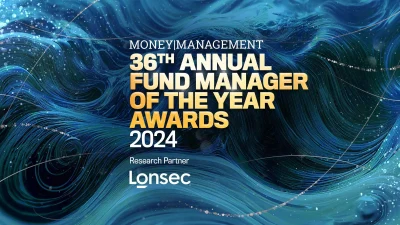A 'superior' approach to company selection


The ability to recognise industry headwinds early and a focus on “superior corporate DNA” has helped the WaveStone Dynamic Australian Equity fund to victory in this year’s Fund Manager of the Year awards.
Recognised in the Long/Short Equities category, the fund was launched in 2009 and aims to provide long-term capital growth. It is high conviction, has the ability to short stocks and has a strict 15-factor process which it says it considers before examining the valuation of a potential inclusion.
Catherine Allfrey, portfolio manager and principal at WaveStone Capital, said: “We have a 15-factor process which is a qualitative filter on a company looking at factors such as its track record, innovation, engagement, operating margin, expansion plans and we call this superior corporate DNA. We will look at all that before we have even looked at company’s valuation, we are not looking for growth at any price or for companies which aren’t profitable”.
Companies which had this ‘superior corporate DNA’ included biotech firm CSL, financial Macquarie and healthcare Resmed, all of which had done well for the fund recently, while a strict, disciplined process and ability to recognise industry headwinds early had also helped.
This aversion to companies which were unprofitable, however, meant the fund had been hurt by the recent market dominance of technology companies such as Afterpay.
In the first six months of 2020, shares in Afterpay rose by 109% compared to 10% losses by the ASX 200 over the same period.
“This year has hurt us as it has been led by technology companies such as Afterpay and NextDC. We were positioned for the economy to improve and instead, the opposite happened,” Allfrey said.
Another sector it disliked was retail property trusts which Allfrey said she “would avoid for the foreseeable future” as rent paid by Australian tenants was far higher than overseas, indicating rents would be decreasing in the future.
Despite this, the long/short approach of the fund meant it had resources at its disposal to avoid the worst of the downturn which occurred in mid-March.
“This is a conservative fund, it can have 50% minimum exposure to the market and a maximum of 100% but the average is 80% and then we can gear up to 150% on the long side. We also have targeted shorts of certain stocks which provide a hedge against falling markets,” she said.
“When markets are falling, we have options available to us such as increasing the short positions and pulling the gearing back to change the portfolio positioning. We became more defensive during the crisis.”
Recommended for you
After a successful inaugural event last year, the Women in Finance Summit is returning in 2024 with more business insights and networking opportunities.
Over 90 finalists have been chosen to compete at the 36th annual Fund Manager of the Year Awards, to be held in Sydney on 13 June.
A director at the Financial Advice Association Australia and a former superannuation chief executive are among recipients of this year’s Australia Day honours.
The software provider has signed on as a partner of the 10th annual Super Fund of the Year Awards, taking place in Melbourne on 25 October.















